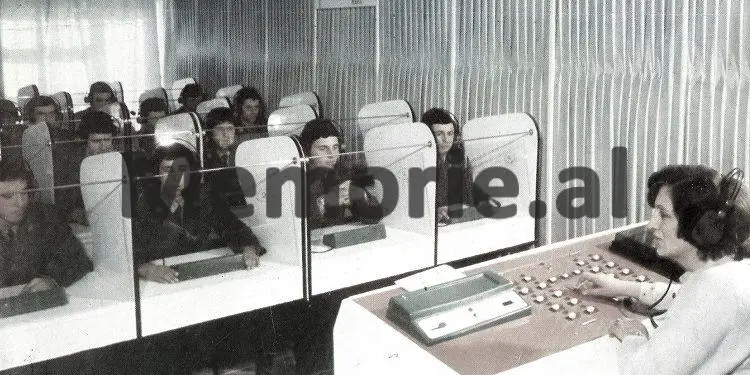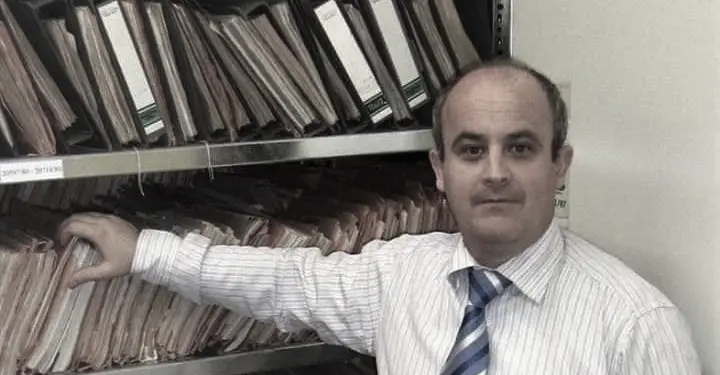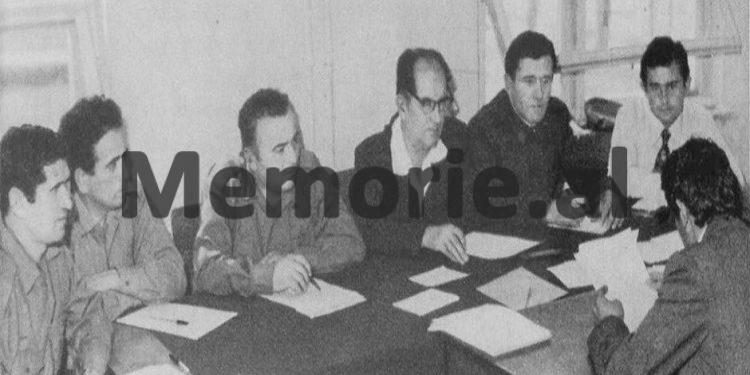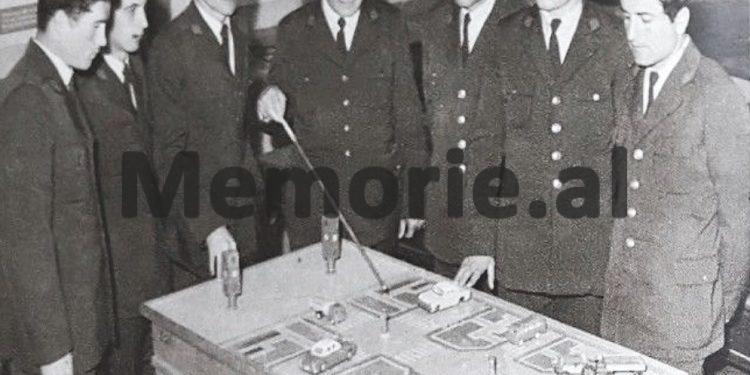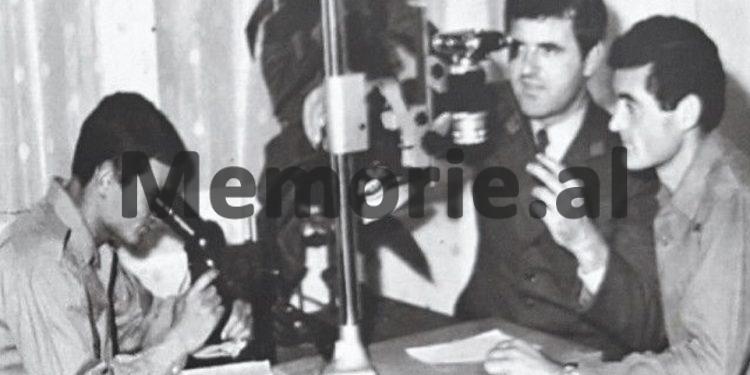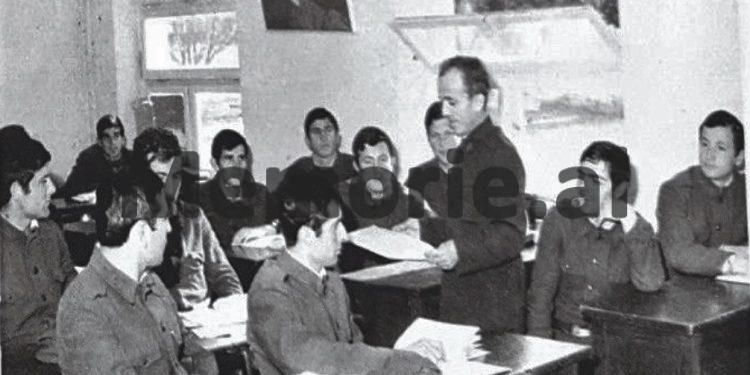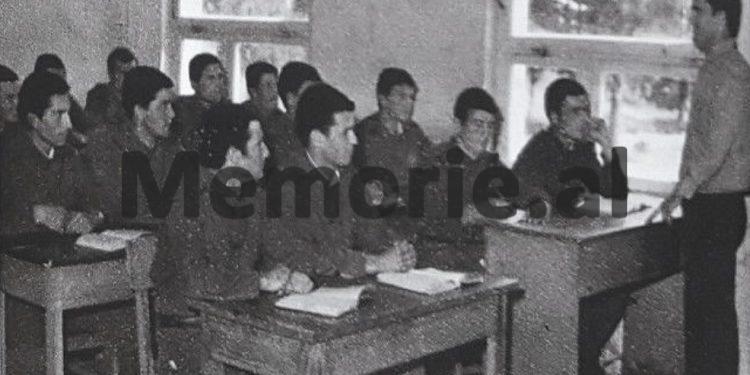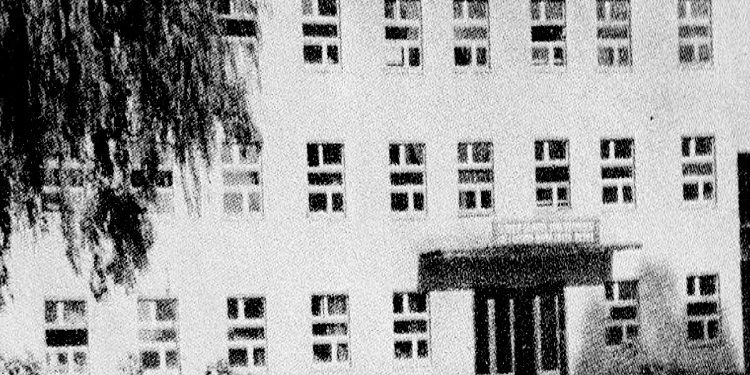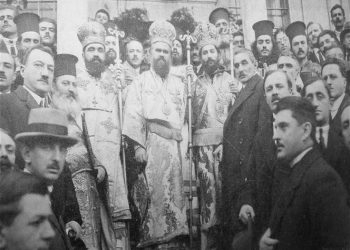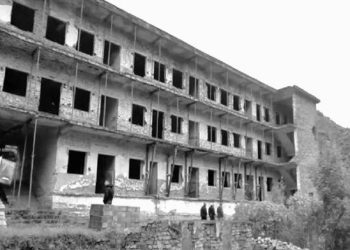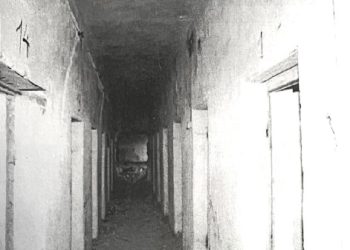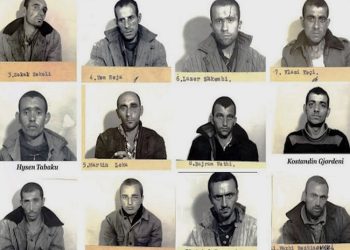By Kastriot Dervishi
-The teaching plan of the “Party Workers” of the State Security-
Memorie.al / Enver Hoxha, had called the officers of the State Security, “Party workers”. In 1992, most of them, about 98%, were released. In 1995, with the law on the control of figures, they were completely prohibited from employment in the state administration. But after 1997, the entire body of officers in question returned to the state administration. In 2008, another image control law was passed, but this was overturned by the Constitutional Court. These actions should have been accompanied by the non-recognition of the high school, the Sigurimi profile, as invalid for the new order that Albania entered, just as it was the case of the non-recognition of the “Vladimir Ilic Lenin” High School of the Party. In order to graduate as an Operative Worker, (Insurance branch), 3,664 hours of study had to be completed (1,656 theoretical lessons and 1,234 in seminars), of which a full 516 hours were “History of the APS” or other subjects related to Marxism-Leninism.
In Sauk, the closest village to Tirana, there used to be the United School of the Ministry of Internal Affairs that prepared senior staff, who then served in all the branches, directorates or departments of this ministry. After the certain number of students who would study at this school were selected, they were divided into 3 main profiles: Police, Security and Border. This was also evident in the student’s diploma, in the item “profile”.
The cadets who came out of the Police profile worked in the Directorate of the People’s Police.
The cadres coming out of the Security profile worked in all three Directorates of State Security. The cadres coming out of the Border profile worked in the Border Command, in the center (Minister) and in the border battalions, along the entire border line, be it land, river, lake and sea. In the fourth year, before they “came into existence”, the professional preparation of future State Security workers was looked at very carefully, having a kind of advantage, compared to the other two profiles.
If in other schools the internship was done in a factory, factory, school, etc., the internship of the fourth year students took place near the Departments of Internal Affairs in the districts, as well as in the place of an event that could happen. The professional preparation directed by an Operative Worker of the relevant branch, included first the ideological education, then moving on to the recognition and use of the operative evidence.
In the first place, importance was given to the study of formula files (operational control or active processing), of ‘objects’ (persons) who were pursued for “espionage”, “agitation and propaganda”, tendency to escape abroad; sabotage and anti-party. In this way, the future “work” that justified the actions of the “beloved weapon of the party and the people” was well defined.
But not only that. The student was expected to participate in an operation, which could be; arrest or deportation. This increased the cohesion and “strengthened the heart” of the future State Security cadre. The Operative Worker was the person who prepared the form file of the object for arrest, elements of which could be used for the launch of the investigative file, which was undertaken by the investigator. Taking part in an arrest, the new cadre saw the connection of the links of the dictatorship, how they became functional.
But even the internment was not lacking in the participation of the Operative Worker. The latter had a certain area in the neighborhood of the city or village. On the basis of the Operative’s proposal, the local commission headed by the first secretary of the District Party Committee proposed to the Internment – Deportation Commission at the Prime Minister’s Office, the decision to intern the person or family, for a period of 5 years.
The education of the staff was considered important, while Enver Hoxha once said about this issue: “The issue of education should be treated as a matter of the bread you eat, for lunch and dinner. If you live without bread, you can live without culture, without Marxism-Leninism. Therefore, attend schools and courses”.
Teaching practice program for 4th year students, State Security branch
Based on the curriculum plan of the Higher School of the Ministry of Internal Affairs, fourth-year students, Security Branch, will conduct a one-month teaching practice at the District Internal Affairs Branches. During this period, students will complete the following tasks:
To participate in the work for the ideological, political, professional and military education of the Security sector according to the plans of the Department of Internal Affairs.
To be familiar with the operative evidence of the Operative Workers (excluding the part of the secret information network and that of processing), with the operational situation of the area, with the actions performed by the Operative Worker, in relation to the operational evidence sector, with the Operative Workers in the Branch and with other Branches of Internal Affairs.
To become familiar with the formal files of an object that is pursued for espionage; of an object pursued for agitation and hostile propaganda; of an object that is pursued for escaping abroad; of an object pursued for sabotage and of an anti-party element.
To work on the drafting of operational measures plans, combination plans for the processing facilities they have known.
To participate in an operation (arrest or deportation).
Be familiar with the personal and work files of an agent, an informant and a resident.
To participate in the meetings organized by the Operative Workshop with these collaborators.
To process the reports received from the associates they meet.
Be familiar with an ORV file. (Objects of Special Importance)
To familiarize themselves with the plan-measures, for ensuring the leadership of the Party and the state, when they come to the district, or in military training.
Familiarize yourself with a folder given the research folder.
To become familiar with the measures taken for the control of foreigners who come through legal channels in that district and with the passport of a foreigner.
To become familiar with the procedure of the measures taken by the Operative Worker of the area, with the head of Security of the unit, for keeping the wartime evidence in readiness and dynamic follow-up.
To participate in the operative-investigative groups, for the inspection of the place of the event.
To go for 3 days in the area with the Operative Workers in order to learn how they organize and carry out the work with the secret network, with processing, contingents, work cooperation with other Operative Workers (Security, Crime Tracking, as well as that of the Army Security), the relations of the Operative Worker with the Party bodies and the authorities in the area, as well as the relations with the masses, etc.
To participate in the analyzes of the work in the section or branch, for Security problems.
To work and be helped to find the necessary materials for the topic of independent work, finish it and send it to school by 4.6.1987.
Stay one day next to the guard officer in the branch and closely follow the actions and tasks he performs during the 24-hour service.
For the drafting of individual plans for each student, as well as for the control of teaching practice, the Department of Security will send its lecturers to the respective Departments of Internal Affairs.
(The said program was also approved by the minister)
Higher school program of the Ministry of Internal Affairs
Education in the Insurance profile was 4 years. Formative exams were given in Marxism-Leninism and specialty subjects. The subjects that were developed were the following:
History of ALP
Political economy (capitalism)
Political economy (socialism)
Dialectical materialism
Historical materialism
Foreign language
Accounting
Logic
Psychology
Theory of the state and law
Prescriptive right
Labor and family law
Civil law (general part)
Criminal law (general part)
Administrative law
The right of obligations
Constitutional right (special part)
Cooperative law
Criminal procedure
Forensic medicine
Linguistic psychiatry
criminology
International public law
Criminology
computing
The history of the State Security weapon
Specialty
Knowledge of foreign discoveries
Technical tools and methods
Tactical preparation
History of Folk Military Art
Fire preparation
Physical preparation
Topography.




